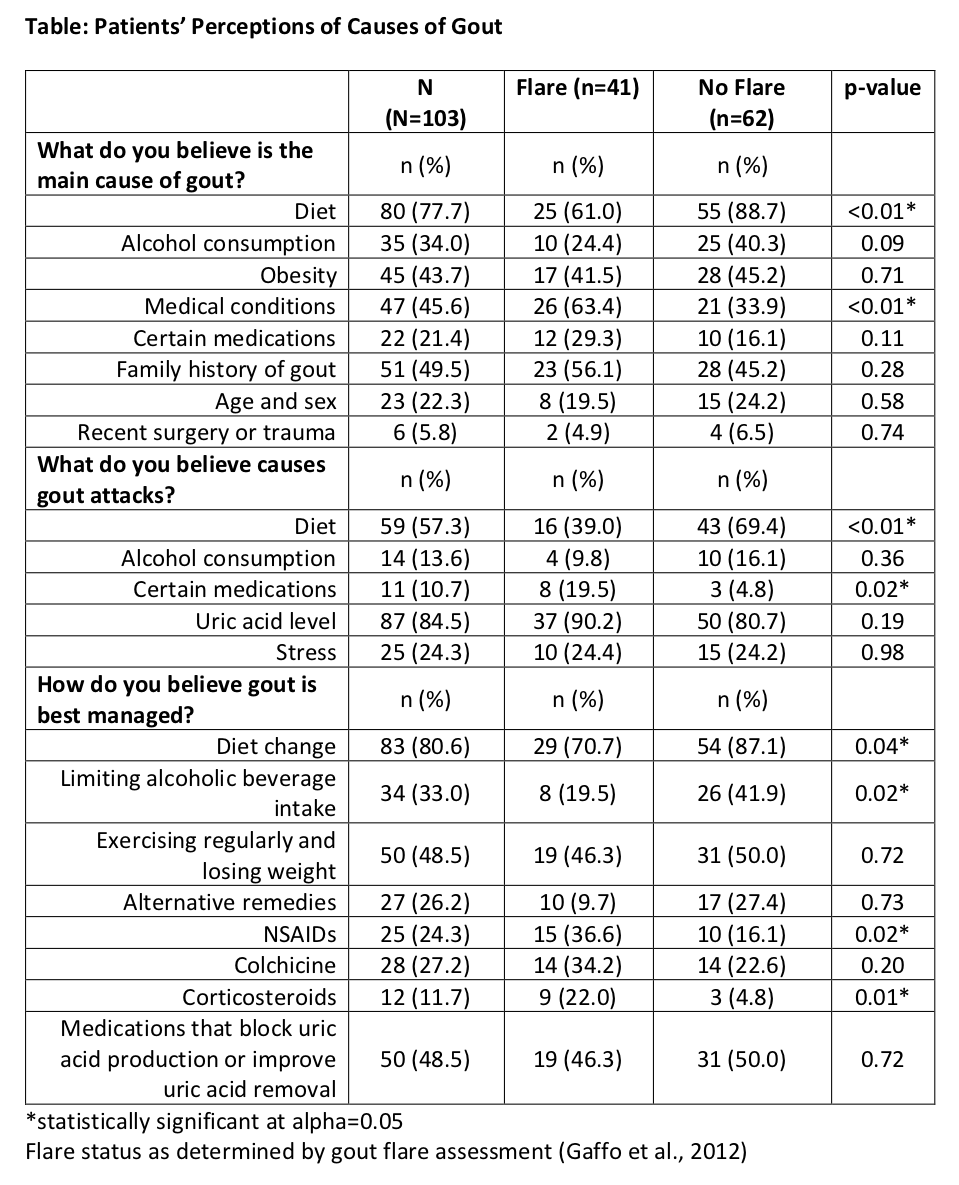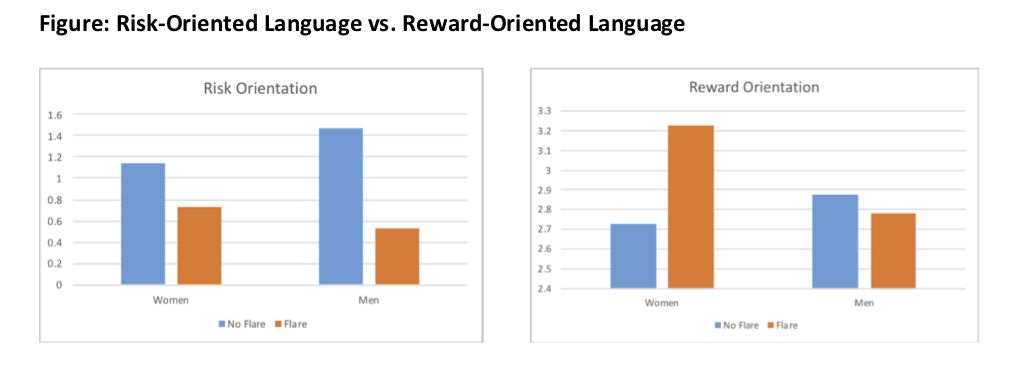Session Information
Date: Tuesday, October 23, 2018
Title: Patient Outcomes, Preferences, and Attitudes Poster II: Patient Perspectives
Session Type: ACR Poster Session C
Session Time: 9:00AM-11:00AM
Background/Purpose: Past research has shown that patients’ (pts’) knowledge of their disease influences health-related behavior. The objective of this study is to explore gout pts’ knowledge of the disease, treatment options and chronic management, as well as identify their sources of health information. With only half of gout pts adherent to gout medications, our goal is to guide the development of gout support tools by identifying gaps in pt knowledge.
Methods: We developed an online survey to gather information about pts’ knowledge, beliefs and perceptions of gout. Pt members of the ArthritisPower registry or CreakyJoints community were asked to participate if they had a self-reported diagnosis of gout. Pts completed six (Pain Interference, Fatigue, Sleep Disturbance, Physical Function, RAPID3, Gout Flare) pt-reported outcome measures. Pearson’s Chi-squared test was used to assess significance. Open-ended questions were analyzed with LIWC2015, an automated text analysis program.
Results: To date, 103 participants completed the survey; 55% were female, 53% had an annual income >=$50,000, 84% white and average age of 56 years (range 32 – 80). 85% believe uric acid causes gout, however, only 50% believe uric acid-controlling medication is the best way to manage the disease. Additionally, 81% believe gout is best managed by diet change. Pts currently experiencing a gout flare were more likely to believe gout is best managed with NSAIDs than those not experiencing a flare (37% vs 16%; p=0.02) (Table). The qualitative results showed that non-flaring pts tended to use risk-oriented language while flaring pts used reward-oriented language (Figure). Pts receive information about gout from online health education sites and their PCP at similar rates (60% and 53%, respectively). Non-flaring pts preferred to get information online more than flaring pts (63% vs. 44%; p=0.06). Men were more likely to seek information from their rheumatologist than women (28% vs 13%; p=0.05).
Conclusion: The survey shows variation in beliefs about gout and in words used to describe gout by gender, age and gout flare status. Food and lifestyle misconceptions remain a large component of pts’ conversations surrounding gout. The majority of pts currently believe gout can be managed through diet rather than prescribed medications, suggesting insufficient pt knowledge about gout. While many pts prefer to access information online, there is still an underutilization of rheumatologists. Developing decisional support tools available at health care offices may help increase knowledge about gout and improve gout health care outcomes.
To cite this abstract in AMA style:
Gavigan K, Jordan K, Meara A, Nowell WB. Understanding Patients’ Perceptions of Gout [abstract]. Arthritis Rheumatol. 2018; 70 (suppl 9). https://acrabstracts.org/abstract/understanding-patients-perceptions-of-gout/. Accessed .« Back to 2018 ACR/ARHP Annual Meeting
ACR Meeting Abstracts - https://acrabstracts.org/abstract/understanding-patients-perceptions-of-gout/


